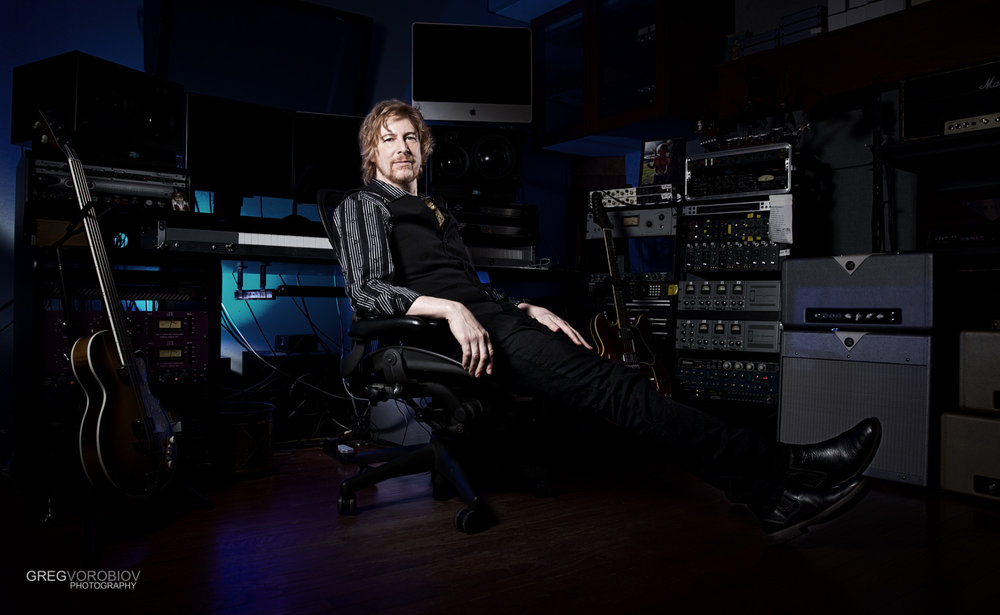
All images courtesy of Howlin’ Wuelf Media
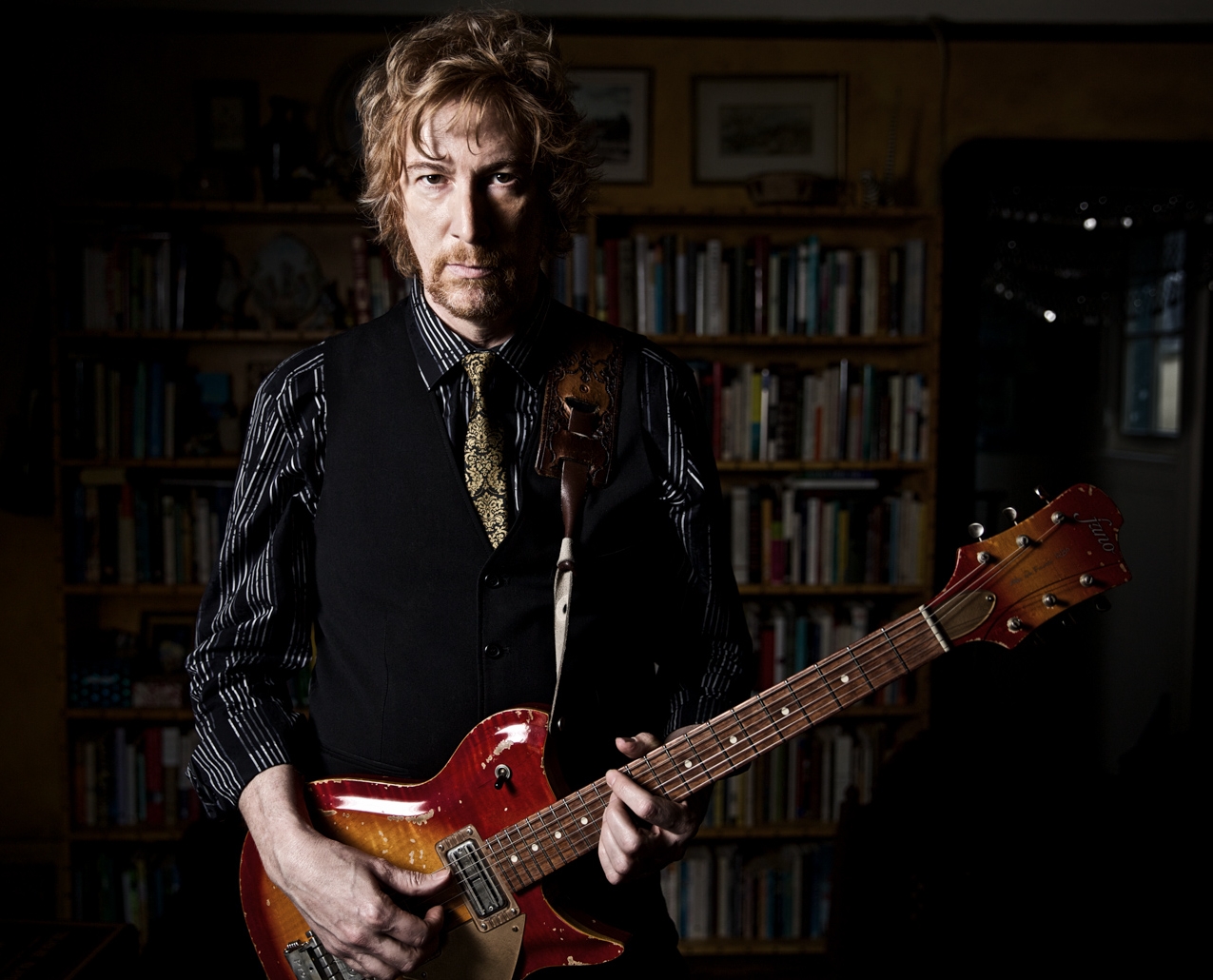
One of the more underrated guitarists and composers is with us today in Lyle Workman. If you don’t know him by name, then I guarantee you will know him by the music he has helped create over the last 30 plus years.
In addition to his own fantastic solo work, Lyle has been a part of Frank Black’s solo band, and participated in the making of most of his classic solo output from the early 90s to the early 2000s. If that’s not enough for you, Lyle has worked with the likes of Todd Rundgren, Norah Jones, Bryan Adams and a whole lot more. Oh, and he was the band leader for the Superbad soundtrack, a movie whose funky vibe was composed by Lyle, along with Bootsy Collins, Catfish Collins, Bernie Worrell and John “Jabo” Starks. No too shabby, huh?
Lyle is with us today, and it’s a really great chat. We talk about his new record, Uncommon Measures, which you can grab here, his early influences, working with Frank Black and more. Dig in.
Andrew:
Lyle, thank you for taking the time to speak with us. This last year has been rough, right? How are you holding up during this seemingly ever-raging dumpster fire?
Lyle:
Thank you for your interest in having this conversation. I am lucky to have a great home life with a wonderful wife and son, so we have found ways to manage life during the pandemic. I am grateful to have been able to be prolific during this time. I recently released on iTunes and other streaming formats 12 albums/EPs of music I had made over the last five years. This is in addition to my newly released record Uncommon Measures.
In terms of music, almost everything I do in is my studio; my process has not changed except that instead of musicians coming over to record at my place, they now record their parts in their own studios. All other aspects of my life have certainly changed, though, as they have for all of us who live in areas where the virus has taken a stronghold. I proceed with caution and abide by the social distancing protocols and only leave home when necessary.
Andrew:
Tell us about your backstory. What was your musical gateway so to speak?
Lyle:
I was born and raised in San Jose, California, fell in love with The Beatles at an early age, and taught myself guitar by listening to their records. My tastes expanded over the years with the advent of Progressive Rock and Jazz-Fusion—Genesis, Yes, Mahavishnu Orchestra, Weather Report. Those hybrid genres led me to what had inspired them; Miles Davis, Ravel and Debussy. After studying music in college, I joined a band out of Sacramento called Bourgeois Tagg, landed a deal with Island Records, and co-wrote a hit single “I Don’t Mind At All.” That band proved to be a launching pad and soon began picking up work in the studio and on the road with a wide array of artists.
Andrew:
As an artist and guitarist, who are some of your earliest and most important influences? How did you develop your signature sound?
Lyle:
My most influences are The Beatles, Pop music of the 60s and 70s, The Who, Jimi Hendrix, Led Zeppelin, ELO, Peter Gabriel, The Police, the Dutch band Focus. Developing a signature sound is something that happens with time. It begins with the conscience effort not to imitate or directly quote others. One must take what they’ve learned, push it aside and let their own sensibilities come to the forefront.
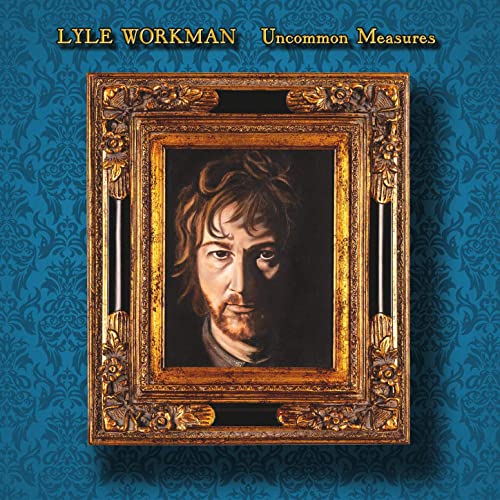
Andrew:
Let’s jump right in and talk about your new record, Uncommon Measures. Tell us more about the record. When does it officially debut? Where can we get it, and what formats will it be on?
Lyle:
For those who have heard my previous records, Uncommon Measures is the next stage of my development. It includes the glorious sound and texture of a 63-piece orchestra which I recorded at Abbey Road. Over the last 15 years I have written music for film that features orchestral music, and I wanted to bring to that element to this record. As in my past records, the music is led by a healthy dose of guitar, accompanied by world class players. It is a blend of Rock, Progressive Rock, Jazz, Fusion, and Classical. It’s the most epic undertaking of anything I’ve done for my own music to date.
The record, available in digital, CD and 180 gram audiophile vinyl can be purchased here: https://www.bluecanoerecords.com/uncommon_measures.html. It will be up on the popular download and streaming sites as well.
Andrew:
More on your new record. What was the inspiration in songwriting? How have you evolved as a solo artist since your earlier work on Purple Passages and Tabula Rasa?
Lyle:
This will be my fourth-instrumental record (the last was called Harmonic Crusader). My most substantial evolution came in 2003 when I started to write Orchestral music for movies. I have always loved Orchestral textures and wanted to bring them and my arrangement experience from working with great orchestrators to this new record. To that end, I went to Abbey Road to record a 63-piece orchestra in the big room, Studio 1, where The Beatles made “A Day In a Life” and where so many iconic artists have worked and films scores have been recorded.
Andrew:
How about the production side of things? Does the band self-produce, or were outside sourced brought in to help hone the sound?
Lyle:
I self produce my own material. I have played on many records and worked with other producers throughout the years. I learned a lot from watching them work, not only about details in the music but also in how to be effective in bringing out the best in musicians.
Andrew:
Let’s go back a bit now. You’ve worked pretty extensively with Frank Black on Teenager of the Year, The Cult of Ray, Devil’s Workshop and Fast Man Raider Man. Tell us more about your contributions to Frank’s solo work. What was it like having the opportunity to work with him?
Lyle:
I absolutely loved every minute with him. He is a true artist; he has such a unique way of writing music and his lyrics are fantastically quirky and interesting. His music has a layer of sophistication but does not come from formal studies, and I found that so compelling. It’s natural to him. He goes to unexpected chords and makes them sound natural in his melodies. On a personal level, he is most generous and I love him as a human being. He gave me a lot of leeway to express myself fully within the context of his music; there was a lot of space for me to do my thing, which was very satisfying.
Andrew:
You’ve also worked with Lisa Marie Presley, Shakira, Norah Jones, Sara Bareilles, Bryan Adams and more. Looking back, what are some of your favorite projects you’ve had a chance to be a part of?
Lyle:
When the people and the working environment are healthy, it’s very pleasant and enjoyable. When I worked with Lisa Marie and Sara, their producer, Eric Rosse, became a very dear friend of mine so that was a great gift. The Jellyfish record Spilt Milk was a monumental project to be a part of because I was a huge fan of the band. Of course Frank Black for the reasons I’ve already mentioned. Todd Rundgren was also extremely important because I love his music. Bryan Adams was a blast because he is such a fun human being and his producer Bob Rock makes such great sounding records. Bob hired me for Michael Bublé and Sarah McLachlan sessions, and listening to playbacks was like hearing a finished record!
Andrew:
How about your very early work with Bourgeois Tagg? Tell us about that band. You only released two records, right? Ultimately, why did that band come to an end?
Lyle:
Bourgeois Tagg made two albums for Island Records. Todd Rundgren produced the second, which was how I ended up playing with him. Our most substantial single was called “I Don’t Mind At All,” a track I wrote with band co-founder Brent Bourgeois, which got us on The Tonight Show with Johnny Carson, American Bandstand and their equivalents in Europe. Ultimately, Brent Bourgeois wanted to pursue a solo career, which ended the band.
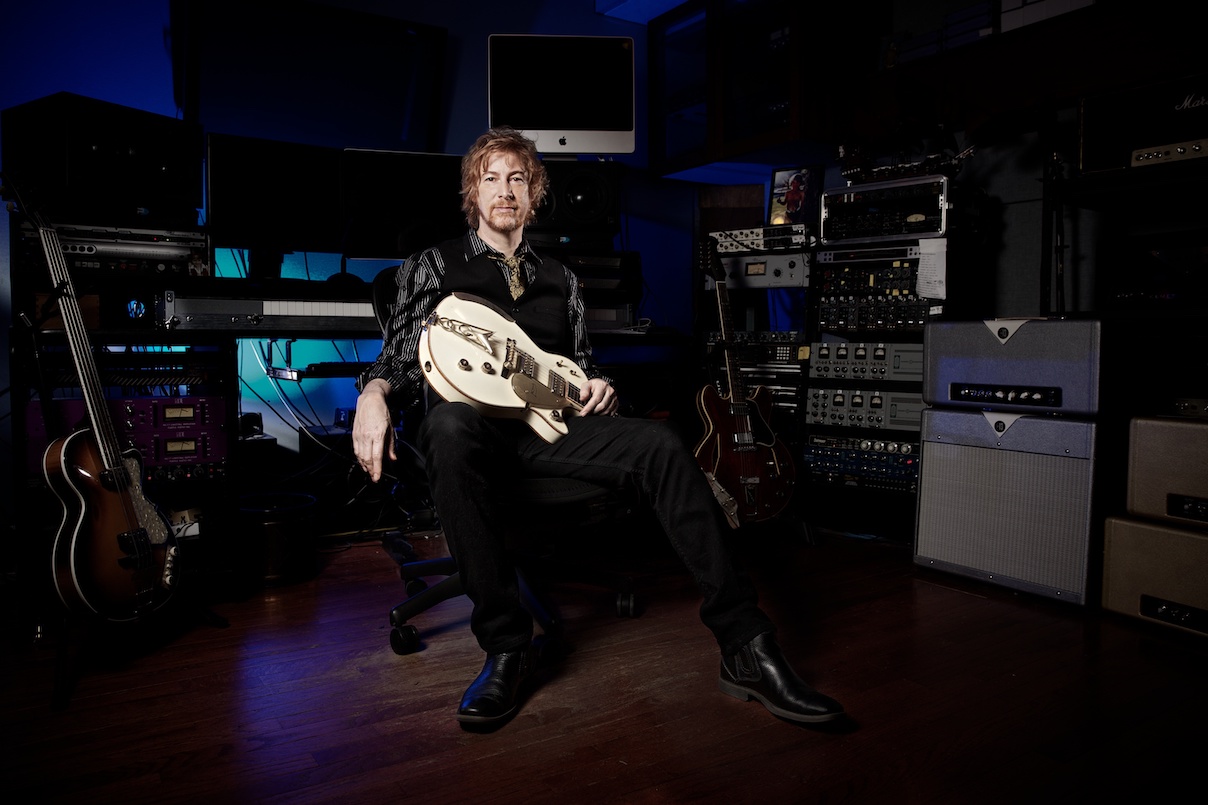
Andrew:
You were the bandleader for the Superbad soundtrack, right? Such a classic soundtrack. How did you land the gig? What do you recall about that project?
Lyle:
I got the Superbad job a few years after I moved to Los Angeles. I had begun work here as a session guitarist and often played on films for composer Edward Shearmur. His wife was an executive at Universal Pictures and through that connection I met the Vice President of Music at Universal who asked me to write some additional music for a film that already had a composer, but they need some Rock-based music for some scenes. At that point, I had some experience writing music for TV commercials and one independent film under my belt, Made, a film by Jon Favreau that I co-composed with a good friend of mine, musician John O’Brien. The Universal project was a Will Ferrell film and one of the producers was Judd Apatow. My music made it in and shortly afterwards, Judd signed a directorial deal with Universal Pictures. The first movie was The 40-Year-Old Virgin. The Vice President championed me, and Judd sent me a couple of scenes to score, to see what I’d bring to the party. I submitted the music, Judd liked it, and to my surprise, I got the job. The film was released at number one for two weeks in a row. My next film was Superbad, another Apatow film also hitting two weeks at number one. That collective commercial success solidified a firm start of my career in film composing, and that’s been the primary focus of my work ever since.
The music of Superbad was set to be R&B and Funk music of the 70s. I had played material like that in bands and I love those genres, so wanted to hire the innovators of that music in order to bring authenticity to what I wrote, the musicians who made that iconic music in the 70s. We had the support of Sony Pictures, which meant I could hire a dream team: Bootsy Collins, Bernie Worrell, and the two James Brown drummers, Clyde Stubblefield and John “Jabo” Starks. Along with Booty’s brother, Catfish, and me on guitar, we comprised the core Superbad band.
The band recorded at Capitol Records for five days and it was a beautiful reunion of old friends, with a lot of love and laughter expressed. I loved hearing the experiences recounted during our breaks; it was a joy to play music with them. The experience was great all around. Sadly, Clyde, Jabo, Bernie and Catfish have passed since then and I count my blessing to have made music with them.
Andrew:
Let’s shift gears now. Touring is usually a huge part of a working artist’s proverbial machine, but as we know, COVID has disallowed it. What do you miss most about touring?
Lyle:
What I miss most about touring is performing in a group and feeling the energy of the audience. I don’t know of a way to replicate that feeling any other way. There’s joy in making music in the moment. When the sound is so good, the band is locked in, and the crowd is with you 100%, it is such a uniquely wonderful and deeply satisfying experience.
Andrew:
One disturbing fact I’ve learned over time is that Spotify doesn’t pay artists well, if at all. What are your thoughts on that issue? How do we as fans do our part to help?
Lyle:
You are correct. The least artist-friendly method is streaming; it puts the very lowest amount into artists’ pockets. In that category, Spotify pays terribly and unjustly low. Peter Frampton received $1,700 for 55 million streams of ‘Baby I Love Your Way.” In what world is that fair and equitable? Fans of music should support the artists they like by paying for their music.
It’s best for music fans to buy physical product, but if the consumer prefers downloadable music, they should buy downloads instead of streaming their music, or at least buy the music in addition to streaming it, especially if the artist is selling the music directly. If musicians can’t support themselves through their music because of a system that doesn’t support them, then eventually they won’t be able to make more music to share with their fans.
Andrew:
In a world dominated by social media, can artists really, truly get ahead? How do we keep the playing field level so that everyone has a chance to succeed?
Lyle:
For music creators to continue to make music, it simply comes down to the choices their fans make to support them: buy product and official merchandise, and attend their concerts and performances. Fan should support Kickstarter and GoFundMe campaigns if they hear things they like. It is VERY hard to make a living being a musician and most musicians, unfortunately, do not make enough money at it to sustain a career over the long run.
Andrew:
Are you into records? Tapes? CDs? Digital? Where do you like to shop for music? What are a few albums that mean the most to you and why?
Lyle:
What I almost always listen to is digital by means of .wav or m4a. I’m in an industry where we exchange music files online as a matter of course. It’s how I work and interact with musicians or others in the film and TV business. It’s very convenient to stay with that method for both work and recreational listening. But I also wanted to get back to vinyl and so a few years ago I put together a nice system. It’s illuminating to go back to my old albums. It is great to revisit the warmth of analog and enjoy the artwork and liner notes, an aspect unique to the vinyl experience. I like to listen to The Beatles and all the records I loved growing up.
A few LPs that mean the most me are those early records I listened to, such as The Beatles White Album and Abbey Road, The Who Who’s Next and Live at Leeds. Other titles are Peter Gabriel SO, and Weather Report Heavy Weather. They made a big impact on me and fueled my desire to play music.
I still have my old cassettes but don’t listen to them anymore unless I want to digitize something that is not commercially available in another format, like an old band rehearsal or original music I was a part of.
Andrew:
Who are some of your favorite artists? Ones that mean the most to you.
Lyle:
Some of my favorite artists besides the ones I already mentioned are Stevie Wonder, David Bowie, Burt Bacharach, XTC, Frank Zappa, Jeff Beck.
Andrew:
Last question. What advice would you have for young artists just starting out? How do they stay afloat in a world that seems to be so abhorrent to creatives?
Lyle:
Upcoming artists must build a fan base through social media platforms that reach the largest audience: Facebook, Instagram, and YouTube. Subscription services with different fan-based options are also effective. I’m sure there are newer means worth exploring on the Internet that provide services for music makers. I wish them all the support they need to flourish and release their material, and have all the means they need to continue and sustain a career in music.
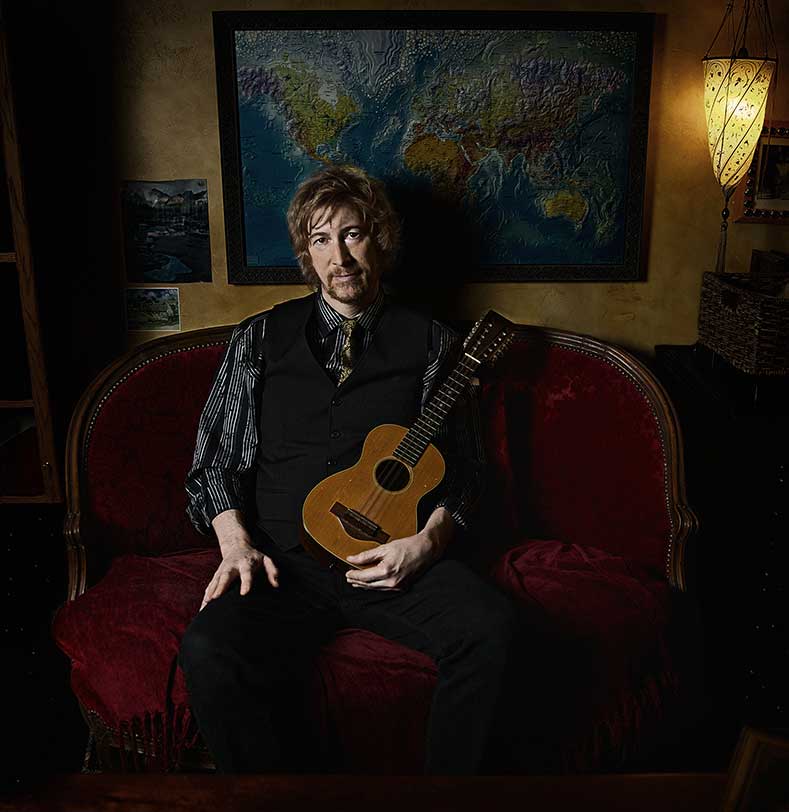
Interested in learning more about the work of Lyle Workman? Check out the link below:
Dig this interview? Check out the full archives of Vinyl Writer Interviews, by Andrew Daly, here: www.vinylwritermusic.com/interview
